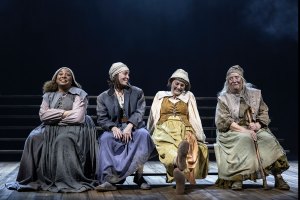Stage by Stage: How Les Misérables came to be
We take a look at the show’s history in our dedicated Stage by Stage feature
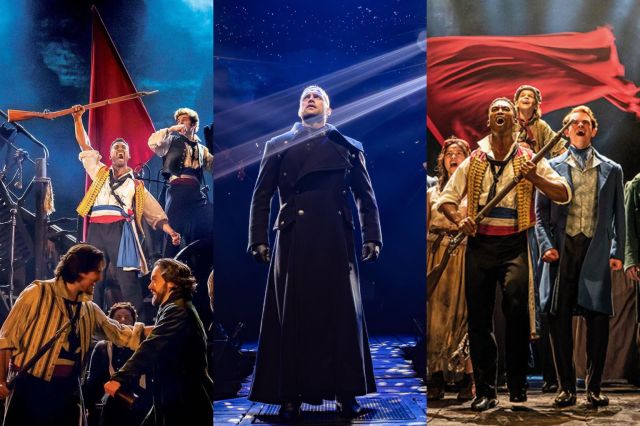
One day more, and another, and another!
Legendary stage show Les Misérables is celebrating its 40th anniversary in London this month, with plenty of festivities.
For years, it has been the longest-running musical in the West End (not show, that title belongs to The Mousetrap), which means that it likely needs no introduction.
Claude-Michel Schönberg, Alain Boublil, Jean-Marc Natel and Herbert Kretzmer’s sung-through masterpiece is based on Victor Hugo’s 1862 novel of the same name. Given its story, it’s no surprise that it originated in written form and was performed in the French language before being adapted and translated into English. Since then, the show has been enjoyed by over 130 million people in 53 countries, and performed in 22 languages.
It’s difficult to imagine the West End without this monumental show, and to mark its birthday, we’re looking at how we got to this point.
At the start of the day!
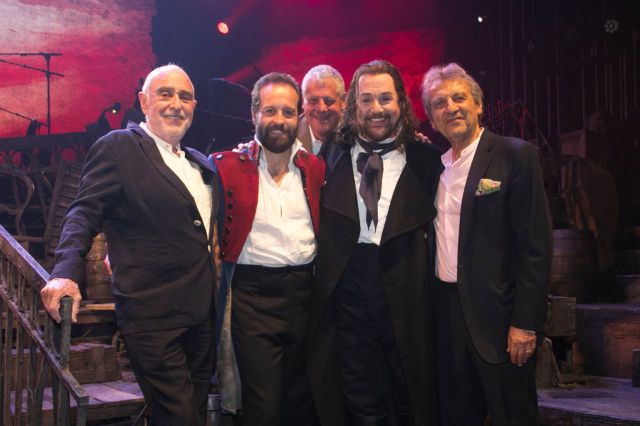
It was actually the Artful Dodger who inspired Boublil’s idea to adapt Hugo’s story. While watching a performance of Oliver! in London (we can assume it was the 1977 revival) at the theatre now known as the Noël Coward, he likened the character to Gavroche. Importantly, Oliver! was produced by Cameron Mackintosh, who you could certainly consider the master of the house of Les Mis!
Having dreamed a dream, after two years of work, the composers had created the initial concept album for the show. The record was released in French in 1980, and Les Mis had its first staging that year in Paris – in a sports arena, no less – with much of the album’s cast.
Consider that not many people adapt 1500-page French works about convicts into musicals, even Puccini had been put off by the idea of adapting it for an opera, producer Mackintosh was initially reluctant about producing the English-language version. Director Peter Farago had first brought the piece to his attention by sharing the vinyl of the cast album. Three years later, and after a trip to Paris to find the composers, Mackintosh assembled a team that included director Trevor Nunn and the Royal Shakespeare Company, who at the time were housed in the Barbican, where Les Mis had its UK premiere before quickly transferring to the West End in 1985, where it has been ever since. First at the Palace Theatre, then the Queen’s Theatre, now known post-refurbishment as the Sondheim.
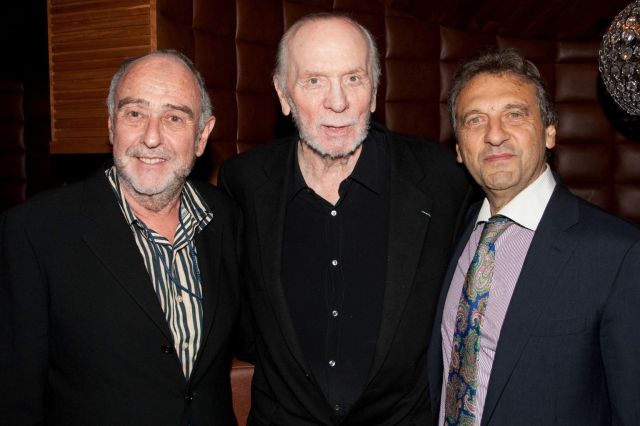
The original creative team featured poet James Fenton, who was removed from the project when the Barbican run was looming and little script had been written. Kretzmer was his replacement and wrote the English libretto. After his death, a series of letters revealed that he felt unfairly credited for his contribution, writing passionately to Mackintosh: “Les Misérables in English is virtually a new, rewritten show.” He did not feel his title of “translator” was just.
In a recent piece by The Telegraph, Schönberg revealed that “Bring Him Home” was written by Kretzmer three weeks before opening. Colm Wilkinson was performing it fewer than 48 hours later.
After its official opening on 8 October, the team feared the worst when reading the reviews in the papers. But, they needn’t have worried – the phone lines were packed. Like many musicals, it was word-of-mouth that cemented its position as a fan favourite from the very beginning.
A Broadway production quickly followed in 1987, where it played 6,680 performances before closing in 2003. But New Yorkers didn’t go without the barricades for too long, as you’ll discover.
Revolves and revivals!
In the early days, the show was tightened to cut down its runtime, and directors have made small changes as the years have passed. However, the most recent and most notable changes came in 2019 from the implementation of Laurence Connor and James Powell’s production, which features new costumes, lighting, and sound design, but at the expense of the revolve.
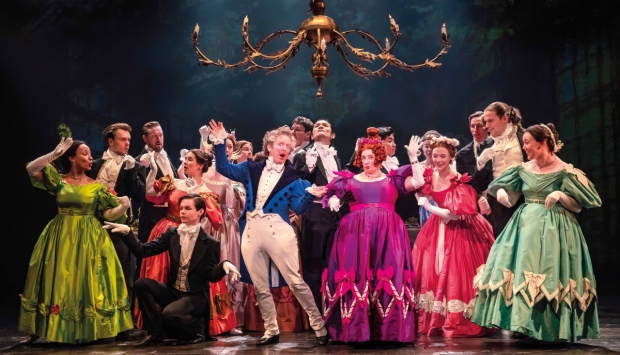
On Broadway, the original production had time to be tweaked and refined based on feedback in London. As a result, numbers were cut (the full version of Gavroche’s “Little People” was one), while lighting and effects were added to darker scenes.
Funnily, when the first revival took place just five years after the show closed, it incorporated some elements that were previously cut. It played for two years at the Broadhurst Theatre before an equally successful 2014 revival, which was first seen in Toronto. These revivals have never departed too far from the original, mostly featuring new orchestrations and arrangements, and as the years passed, implementing projection screens.
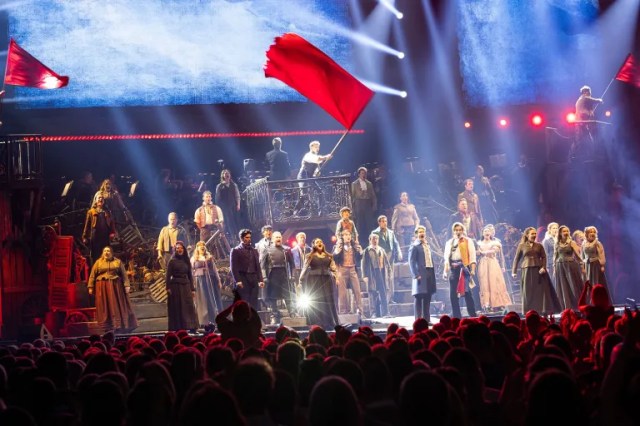
The most significant new productions have been the concert stagings, usually to celebrate landmark occasions: the 10th anniversary at the Royal Albert Hall, the 25th anniversary tour and O2 concert (which incorporated illustrations by Hugo), the 2019 all-star concert while renovations were taking place at the Sondheim Theatre, and the 2024 Arena Spectacular.
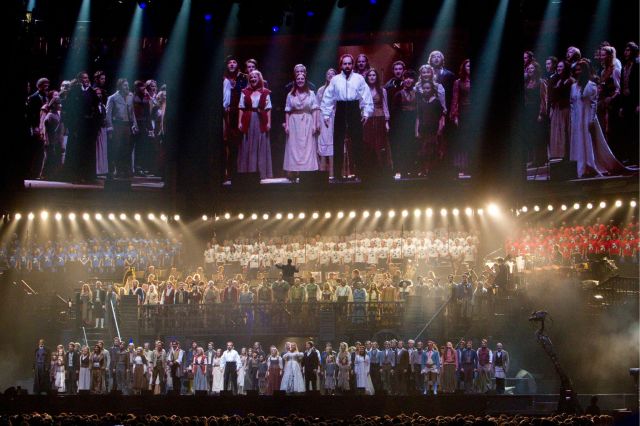
In 2025, to mark 40 years of Les Mis, for the first time, amateur theatre groups were able to stage Let the People Sing!. Eleven groups had the honour, and one production took place outdoors!
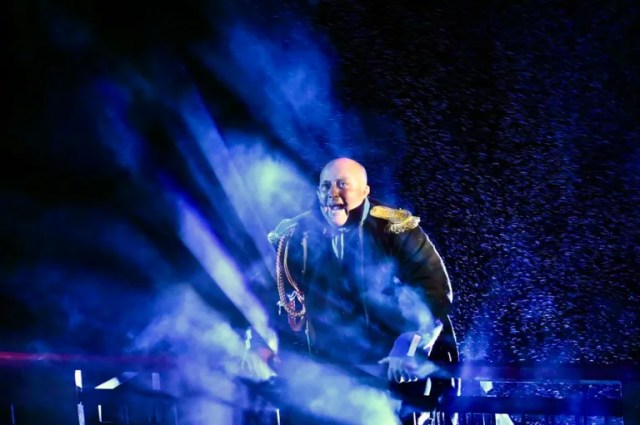
Stars in their multitudes
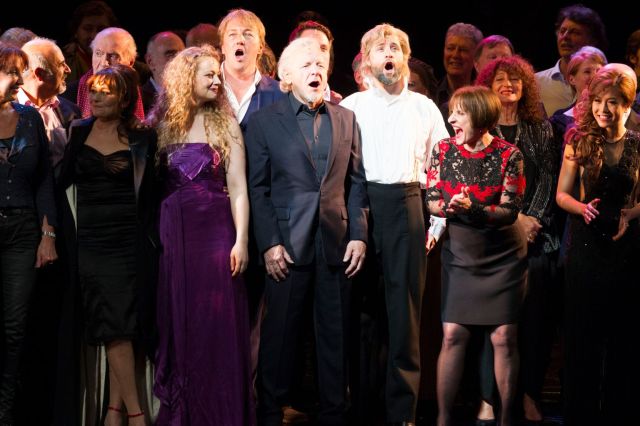
Everyone has their favourite Les Mis alumni. Everyone. They may be a purist who loves the original cast, Roger Allam as Javert, Patti LuPone as Fantine, and Colm Wilkinson as Jean Valjean, or prefer one of the many iconic performances that have followed. Notable cast members include: John Owen-Jones, Alfie Boe, Matt Lucas, Earl Carpenter, Killian Donnelly, Jon Robyns, Lea Salonga, Nick Jonas, Eva Noblezada, Samantha Barks, Carrie Hope Fletcher, Rachelle Ann Go, Norm Lewis, Bradley Jaden and many more.
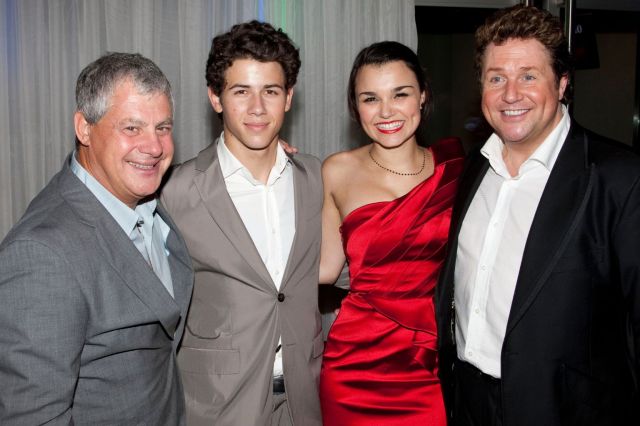
Similarly, everyone has their favourite Les Mis character. Whether it’s the frail dreamer of Fantine, the persecuted Jean Valjean, the relentless Javert in his pursuit, the vicious, but hilarious, Thénardiers, or one of the three young hopefuls caught in a love triangle. These characters, though based in post-Napoleonic France, represent tales of freedom, hope, and redemption that go well beyond the barricade. The original casts have been on record in the past to recall the early rewrites that saw their lines and scenes reduced in size to make the now three-hour runtime more accessible – a key turning point that started to sway those initial naysayer critics.
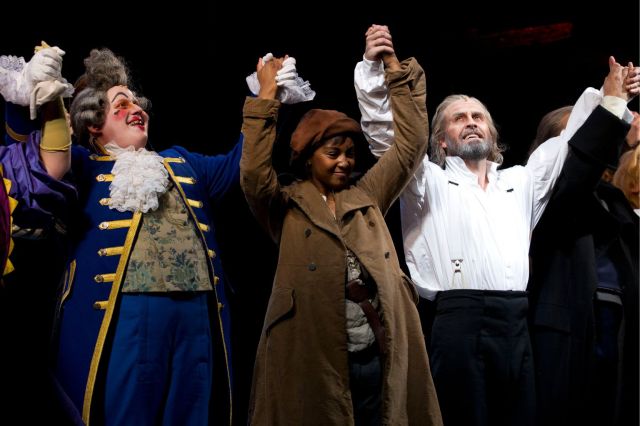
In addition to star-making turns, the show has given many performers their breakthroughs. The children’s roles of Gavroche, Cosette, and Éponine have been played by recognisable faces, with several returning to the production as adults. Interested to learn more? Just click the links above!
The family affair of Les Mis is constantly celebrated in the anniversary celebrations. However, there is an actual family with a connection to the show. One former young Cosette, Eliza Sophie Caird, is the daughter of Ruffelle, Broadway’s Tony Award-winning Éponine, and John Caird, the original London production’s co-director.
Bring the awards home!
As mentioned, Les Misérables wasn’t initially a critic’s pick. Even so, it was nominated for four Olivier Awards in 1985, including Best New Musical and acting nominations for Wilkinson, Alun Armstrong, and LuPone. LuPone took home the show’s only trophy that night.
It fared better at the Tony Awards, being nominated for 12 and winning a healthy eight of those, including Best Musical. Other categories included Best Book of a Musical, Best Original Score, Best Direction of a Musical, Best Scenic Design and Best Lighting Design, as well as wins for performers Michael Maguire and Ruffelle. Cast members Wilkinson, Terrence Mann and Judy Kuhn also received nominations.

Les Mis failed to add more trophies to its mantelpiece with the revivals. However, over the years, it has picked up its fair share of WhatsOnStage Awards – including in the now-retired categories of Theatre Event of the Year and Best Ensemble, as well as Best Takeover awards for Hope Fletcher, Boe and Ramin Karimloo, plus, of course, Best West End Show.
Hear the people sing, live!
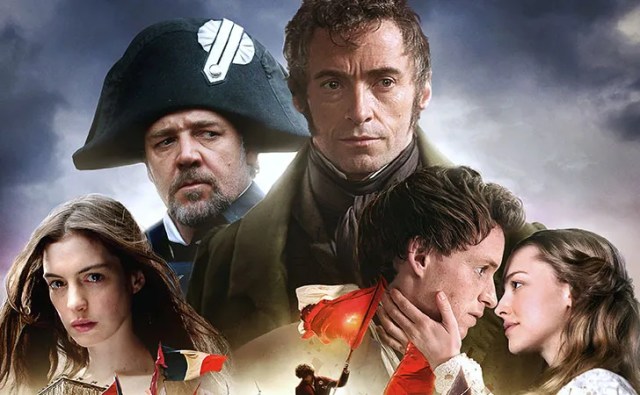
Tom Hopper’s 2012 film adaptation thrust Les Mis even further into the public stratosphere. With a cast including Hugh Jackman, Russell Crowe, Anne Hathaway, Eddie Redmayne, Amanda Seyfried, Helena Bonham Carter, Sacha Baron Cohen, Barks (who was handpicked to reprise her role of Éponine on screen), Aaron Tveit, and Daniel Huttlestone, the movie came after more than ten years of development. It was remastered last year.
Anticipation was so high that names, including Taylor Swift, Miley Cyrus, Kate Winslet, and more, were all connected at regular intervals.
Notably, the film required the performers to sing live. As a guide, they used live piano accompaniments played through earpieces, with the orchestra added in post-production. As a result, there’s real emotion in the performances, which, like the stage show, is largely sung-through. A new number, “Suddenly”, was added for the film. The lullaby-esque number is sung by Valjean, acknowledging his love for Cosette.
Five facts to impress your friends
A new musical based on the life of street urchin Gavroche is reportedly in the works. Bonnie Gleicher has penned the show, which was directed in an invite-only workshop by Catie Davis with musical direction by Adam Laird, in 2022. It follows the street urchin and his sisters, Éponine and Azelma (who doesn’t appear in the musical despite being in the book), across the 1832 June rebellion.
The image of Cosette that acts as the show’s emblem is taken from the original book illustration by Émile Bayard. However, the recreation for the film uses the face of Isabelle Allen, who played Young Cosette in the film, and also in the West End.
“On My Own” sounds like a number Fantine could also sing, and there’s a reason for that. In the French-language version, the number was titled “L’Air de la Misère” and was sung by Fantine, but the words didn’t translate in English, and the producers didn’t want her to sing two ballads back-to-back before her death. It was rewritten and given to Éponine.
Kretzmer met his wife, Sybil Sever, at the opening night party in New York. They lived together until the end of his life in London.
In Les Misérables, many of the cast are expected to play ensemble tracks alongside their main and supporting roles. The main exceptions tend to be whoever is playing Jean Valjean and Javert. Famously, LuPone wrote in her memoir that she resisted this while playing Fantine, citing needing to save her voice, but ultimately ended up on the barricades.












